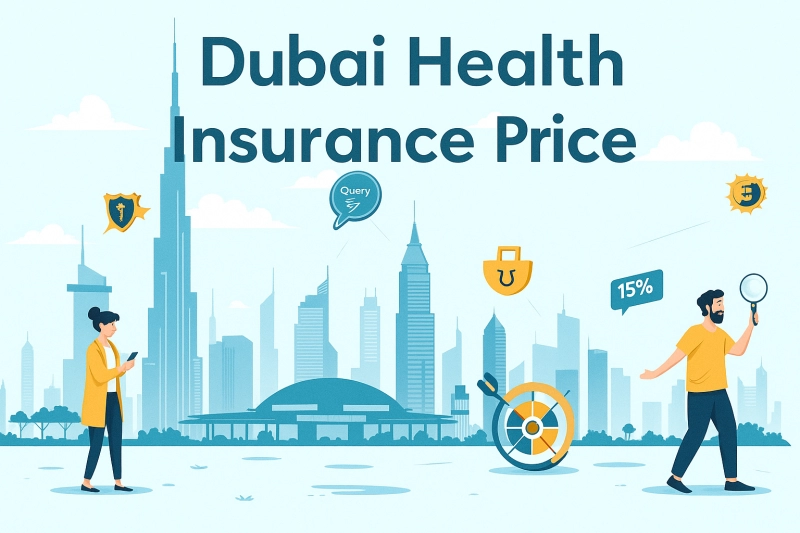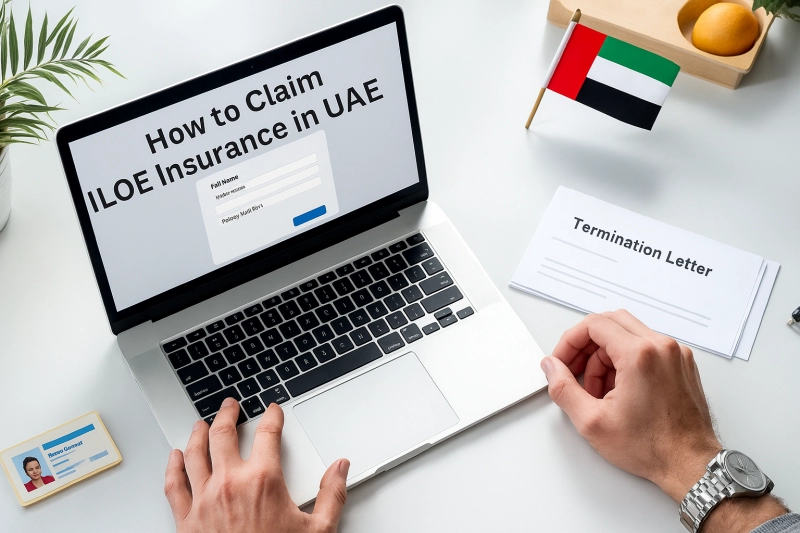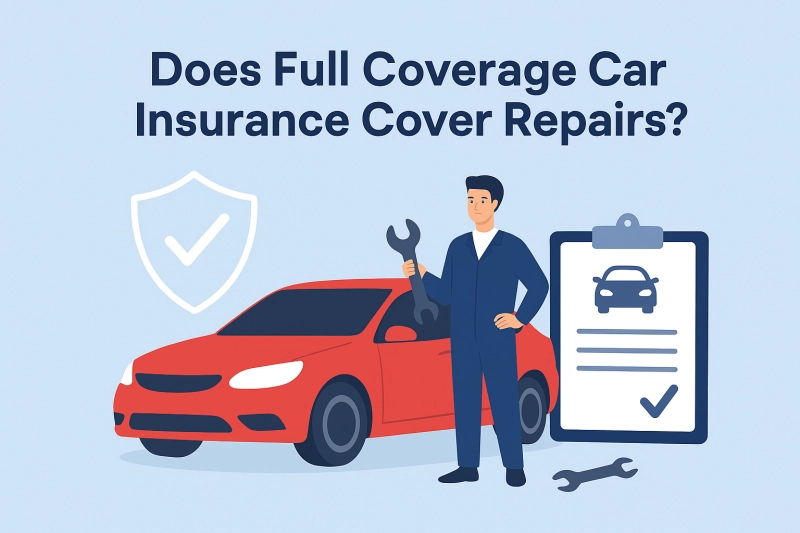Navigating Dubai Health Insurance Price
So, how much does health insurance in Dubai actually cost? It's a question with no single answer. A basic plan might only set you back AED 600 per year, while a top-tier, comprehensive plan for a family can easily top AED 35,000. The final price really comes down to your age, what you need covered, and the type of plan you choose.
A Realistic Look at Dubai Health Insurance Costs
Trying to pin down a single price for health insurance in Dubai is a bit like trying to catch smoke. There's no one-size-fits-all number because the cost is shaped entirely by your personal situation and how much protection you want.
Think of it like choosing a mobile phone plan. Some packages are stripped-down to the basics for a low monthly fee, perfect for someone who just needs calls and texts. Others are all-inclusive, with unlimited data and international roaming, but come with a much higher price tag. Health insurance works the same way. A young, single expat might find a basic plan is more than enough. On the other hand, a family with children will likely want broader coverage that includes things like dental, vision, and extensive maternity care.
The trick is to understand how these different plans are built so you can find one that fits both your life and your budget.
Estimated Annual Dubai Health Insurance Price Ranges
To give you a clearer picture, let's break down some typical annual premium ranges. This table gives a quick snapshot of what you might expect to pay depending on who needs coverage and the level of benefits.
| Profile | Basic Plan (EBP/Low-Tier) | Mid-Tier Plan | Premium Plan |
| Young Single Expat (30 yrs) | AED 600 – 1,800 | AED 2,500 – 4,500 | AED 15,000+ |
| Couple (35 yrs) | AED 3,500 – 5,000 | AED 8,000 – 12,000 | AED 30,000+ |
| Family of 4 (Parents 40s, 2 Kids) | AED 8,000 – 12,000 | AED 18,000 – 25,000 | AED 35,000+ |
Of course, these are just estimates. Your final quote will depend on several other factors, which we'll dive into next.
"For expats, getting a handle on these variables is absolutely crucial. You can learn more by checking out our complete guide to expat health insurance in the UAE."
This pricing structure isn't happening in a vacuum. It's shaped by a booming market. As of 2025, the UAE's health insurance industry is valued at a staggering USD 9.34 billion, and it's projected to climb to USD 13.6 billion by 2030. This incredible growth is fueled by mandatory insurance laws that have brought coverage to millions more residents, creating a large and stable insurance pool for everyone.
Decoding the Factors That Drive Your Premium
While average costs give you a general idea, your final premium is a highly personal figure. Think of it like building a custom car—every feature you add, from the engine size to the leather interior, adjusts the final price tag. Your Dubai health insurance price works much the same way, with several key components coming together to create your total.
When you understand these factors, you can take control of your insurance budget. It’s all about knowing what you’re paying for and where you can make smart adjustments without sacrificing the care that matters most.
Your Age and Medical History
This is the biggest piece of the puzzle. For insurers, age is a primary indicator of risk. It's a simple statistical reality: older individuals are more likely to need medical attention. That's why a premium for a 50-year-old will almost always be higher than for a 25-year-old, even if their plans look identical on paper.
Your medical history, especially any pre-existing conditions like diabetes or hypertension, also plays a massive role. If you have a known health issue, insurers often add a 'loading' fee to your premium. This is to cover the expected costs of managing that specific condition.
Level of Coverage
The scope of your benefits package is another major cost driver. A bare-bones plan that only covers essential inpatient treatment will, of course, be much cheaper than a comprehensive one.
The key benefits that push your premium up include:
- Out-patient services: This is for all your non-hospital-stay needs, like visiting a GP, seeing a specialist, or getting diagnostic tests.
- Dental and optical care: These are almost always treated as optional add-ons and will increase your premium.
- Maternity benefits: Good maternity cover is a significant, and often costly, addition.
- Prescription medication: The extent to which your plan covers the cost of medicines can also nudge the price up or down.
"Understanding how these benefits actually get approved is crucial. For a closer look at how well different insurers deliver on their promises, it's worth reading our guide on understanding claim settlement ratios in UAE health insurance."
Network and Geographical Scope
The list of hospitals and clinics you can visit—your 'network'—directly impacts your Dubai health insurance price. A plan with a limited network of lesser-known clinics will always be more affordable than one giving you access to premium, internationally recognised hospitals.
Likewise, your geographical coverage area is a big deal. A plan that only protects you within the UAE will be cheaper than one offering international coverage. If you’re a frequent traveller, that worldwide protection might be a necessity, but it definitely comes at a higher price.
To really get into the weeds and compare how network limits and other fine print affect the overall value of different plans, a specialised tool like an AI Agent for Healthcare Policy Analysis can be a huge help. It can break down dense policy documents for you.
Choosing The Right Insurance Tier For Your Needs
When you're looking at health insurance in Dubai, it's easy to get lost in the jargon. But think of it like booking a flight: you've got everything from a basic economy seat to a first-class suite. Not all plans are created equal, and the one you choose depends entirely on your personal needs, your budget, and how much risk you're comfortable with.
Picking the right tier is crucial. Go too high, and you could be paying for premium perks you'll never touch. Aim too low, and you might find yourself dangerously underinsured right when you need that coverage the most. Let’s walk through the three main levels of cover you’ll find in Dubai, so you can make a smart choice that fits your life.
Essential Benefits Plan (EBP)
The Essential Benefits Plan (EBP) is the baseline. It’s the minimum level of health insurance mandated by the Dubai Health Authority (DHA), designed to make sure every single resident has access to basic medical care. This is your no-frills, core package.
An EBP is a perfect fit for:
- Anyone on a tight budget who needs to meet visa requirements.
- Young, healthy individuals without chronic conditions who just need a safety net.
- People whose main worry is covering an unexpected emergency, not regular doctor visits.
Mid-Tier Plans
Taking a step up, mid-tier plans strike a great balance between what you pay and what you get. They include everything from an EBP but add much-needed flexibility, like a wider choice of hospitals, higher annual claim limits, and often some basic dental or wellness benefits. This is the sweet spot for many professionals and families in Dubai.
If you want more options for choosing your doctors and clinics without shelling out for a top-of-the-line plan, this is likely where you'll land. It provides a comfortable buffer for a reasonable price.
Comprehensive and Premium Plans
At the very top, you have comprehensive and premium plans. These offer the highest level of protection available. We’re talking extensive hospital networks that include premium facilities, worldwide coverage, and generous benefits for dental, optical, and maternity care. The annual limits are incredibly high, giving you peace of mind that you're covered for nearly any medical situation.
To give you a better side-by-side view, here's a simple breakdown of what each tier typically offers.
Dubai Health Insurance Plan Tiers Compared
As you can see, the jump from one tier to the next brings significant upgrades in flexibility and coverage.
This diverse range of options is part of a booming market. The UAE's health insurance sector was valued at around USD 8.7 billion in 2024 and is forecast to climb to USD 12.7 billion by 2030. This incredible growth is fueled by mandatory insurance laws and a growing demand for different plan types, especially for group private medical insurance, which is fast becoming the standard for employers.
The image below highlights the key factors that drive your final premium, no matter which tier you choose.
Ultimately, your personal details—like your age, current health, and the level of coverage you're after—are the building blocks that determine the cost of your plan.
How Your Visa and Employment Status Affect Your Insurance
In Dubai, your visa isn't just a stamp in your passport—it's the master key that unlocks your health insurance options and directly shapes the price you'll pay. Your status as an employee, a freelancer, or a dependent creates entirely different paths to getting covered, so it's vital to know exactly where you fit in.
For the vast majority of expats, their employer is the first and most critical link to health insurance. Dubai law makes it crystal clear: all employers must provide at least a basic level of health coverage for their staff. This isn't just a nice perk; it's a fundamental right tied directly to your employment contract and visa, ensuring everyone has a safety net.
The Power of Group Plans
So, why is employer-provided insurance so central to the Dubai health insurance price landscape? It all comes down to a simple but powerful idea called risk pooling.
Think of it this way: an insurer covering just one person has to base the entire premium on that single individual's health. It’s a bit of a gamble. Now, imagine that same insurer covering a company with 500 employees. By spreading the potential risk across a large group of people—some young, some old, some perfectly healthy, some with pre-existing conditions—the insurer can offer a much lower premium for each person. This group discount is a huge financial advantage.
It's precisely why a policy you get through your company is almost always more affordable than an identical one you could buy on your own.
This dynamic is the engine of the entire UAE market. The health insurance sector, valued at a massive USD 8.72 billion in 2024, is expected to surge to USD 14.9 billion by 2033. This growth is overwhelmingly driven by the nearly 11 million expatriates who are covered under these mandatory employer schemes.
Freelancers and Dependents Going It Alone
Now, if you're a freelancer, an investor, or a dependent (like a spouse or child not covered by an employer’s plan), the tables turn. The responsibility for securing insurance lands squarely on your shoulders. You must purchase an individual plan to meet your visa requirements.
This means you miss out on the group rates. Your premium will be calculated based on purely personal factors, like your age and health history, which often makes it more expensive.
"For anyone managing their own residency, the paperwork can get complicated. As you figure out how your visa status impacts your insurance, keeping all the associated documents in order is key. Using efficient immigration case management solutions can really help organise the entire process."
This is a critical distinction to understand. An employee’s main job is simply to understand the plan their company gives them. A freelancer, on the other hand, has to become their own broker and shop the entire market. It’s a responsibility that truly underscores https://insurancehub.ae/blog/the-importance-of-health-insurance-protecting-your-physical-and-financial-well-being when you're the one in charge of it all.
Practical Ways to Lower Your Health Insurance Costs
Knowing what pushes up the Dubai health insurance price is one half of the battle. The other half is knowing how to bring it back down. The good news? You have far more control over your premium than you might realise.
A few smart, strategic moves can make a real difference to your annual bill, all without gutting the quality of care you and your family rely on. This isn't about finding risky loopholes or settling for a policy that leaves you exposed. It’s about making conscious choices to align your plan with your actual needs and budget.
Let’s walk through some of the most effective ways to get a more affordable health insurance plan.
Fine-Tune Your Coverage
One of the most direct routes to a lower premium is by tweaking the core mechanics of your plan. Think of these as the main dials you can turn to adjust the final cost.
- Increase Your Deductible: This is the amount you pay yourself before the insurance company steps in. Opting for a higher deductible almost always results in a lower premium. If you're generally healthy and don't visit the doctor often, this is a fantastic way to save.
- Choose a Co-payment Plan: A co-payment is that fixed fee you pay for a service, like an AED 50 fee for a GP visit. Plans with higher co-payments tend to have lower overall premiums because you’re agreeing to share more of the smaller, routine costs.
Essentially, by taking on a slightly bigger share of the initial costs, you signal to the insurer that you’ll only use services when truly needed. This lowers their risk, and they pass those savings on to you.
Select a More Focused Network
It’s tempting to want a plan that includes every top-tier hospital in the UAE, but that massive network is a huge driver of cost. Be honest with yourself—do you really need access to all of them?
Choosing a plan with a more focused or tiered network of clinics and hospitals can lead to serious savings. Many excellent mid-range plans offer fantastic access to high-quality facilities that are more than capable of handling the vast majority of healthcare needs. Get realistic about where you'd actually go for treatment and find a network that matches.
"The goal is to strike the right balance between affordability and access. Getting this trade-off wrong can be a major headache, which is why it pays to understand the common mistakes to avoid while choosing health insurance before you commit."
Review and Remove Unnecessary Add-Ons
Many premium plans are packed with bells and whistles that sound great on paper but might be completely irrelevant to your life. Take a hard look at exactly what you're paying for.
Do you really need comprehensive worldwide coverage if you barely travel outside the UAE? Are high-end dental and optical benefits a must-have right now, or could a more basic option do the job? Trimming these non-essential add-ons can shave hundreds, if not thousands, of dirhams off your annual bill. It's all about paying for what you'll actually use.
Feeling overwhelmed by the options? Let the experts at InsuranceHub.ae simplify the process for you. Compare personalised quotes from top UAE insurers in minutes and find the perfect plan for your budget and needs. Get started today at https://insurancehub.ae and see how much you can save.







